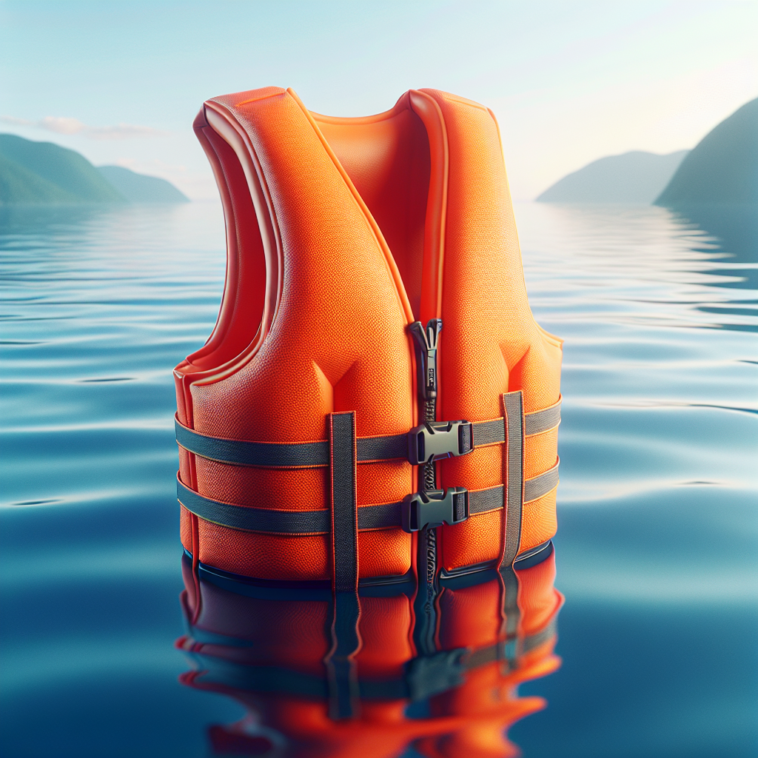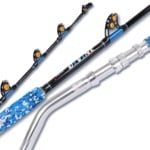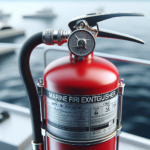So you’re ready to set sail on your boat, but before you hit the water, it’s essential to have a basic boat tool kit on board. This kit is your lifeline, ensuring that you’re prepared for any unexpected repairs or maintenance while out at sea. From essential tools like wrenches and screwdrivers to safety equipment like spare fuses and marine tape, the contents of your boat tool kit are crucial for a smooth and worry-free boating experience. Let’s take a closer look at what items should be included in this essential kit to keep you well-equipped and ready to handle any situation that comes your way.
Safety Essentials
When it comes to boating, safety should always be your top priority. Before setting out on the water, it’s important to ensure that you have the necessary safety essentials on board. One of the most crucial safety items is a PFD, or personal flotation device. These life jackets are designed to keep you afloat in case of an emergency and are available in various sizes to fit both adults and children. It’s essential to have enough PFDs for everyone on board, and it’s equally important to ensure that they are in good condition and properly fitted.
Another essential safety item is a fire extinguisher. Fires can be devastating on a boat, and having a fire extinguisher readily accessible can make all the difference in preventing a small fire from turning into a disaster. Make sure the fire extinguisher is in good working condition and is suitable for use on boats. Check the pressure gauge periodically to ensure that it is properly charged.
A first aid kit is another essential safety item that should be included in your boat tool kit. Accidents can happen at any time, and having a well-stocked first aid kit can help you attend to minor injuries and provide temporary relief until medical help arrives. Your first aid kit should include items such as bandages, antiseptic ointment, adhesive tape, and pain relievers. It’s also a good idea to include seasickness medication for those prone to motion sickness.
An emergency whistle is a small but powerful tool that can help attract attention and signal for help in case of an emergency. It’s lightweight and can easily be attached to your life jacket or kept in your pocket. When choosing an emergency whistle, look for one that is loud and durable, capable of being heard over long distances and in adverse weather conditions.
Lastly, signal flares are an essential tool for signaling distress and attracting attention. These pyrotechnic devices emit bright lights or colored smoke, making them highly visible even in low light or foggy conditions. Familiarize yourself with the proper use of signal flares and make sure to check their expiration dates regularly to ensure their effectiveness.
Navigation Tools
Proper navigation is essential for safe and successful boating. Having the right navigation tools on board can help you stay on course and navigate through unfamiliar waters. One of the most basic navigation tools is a compass. A compass can help you determine your heading and maintain a correct course, even when visibility is limited or when electronic navigation systems fail.
navigational charts are another crucial tool for boaters. These charts provide detailed information about water depths, hazards, and navigational aids, allowing you to plan your route and navigate safely. Invest in up-to-date charts specific to the areas you will be boating in, and familiarize yourself with their symbols and markings.
A GPS, or Global Positioning System, is an invaluable tool for boaters. GPS devices use satellite signals to determine your precise location, speed, and heading. They can also provide information on nearby points of interest, weather conditions, and navigational routes. Consider investing in a handheld GPS device specifically designed for marine use, as these are often water-resistant and have additional features tailored to boating.
binoculars are not only great for taking in the view, but they are also essential for boaters. They can help you spot navigational aids, other vessels, and potential hazards at a distance, allowing you to make informed decisions and avoid dangerous situations. Look for binoculars with a built-in compass or range-finding reticle for added functionality.
Communication Tools
Communication is key when it comes to boating safety. Having the right communication tools on board can help you stay connected with other boaters, authorities, and emergency services. A marine radio is an essential communication tool, allowing you to communicate with other vessels, obtain weather updates, and call for help in case of an emergency. Make sure to familiarize yourself with the operation of the marine radio and obtain the necessary licensing or certifications.
In addition to a marine radio, having a cell phone or satellite phone on board can provide an additional means of communication. Cell phones can be used to call for help in areas with cellular coverage, while satellite phones work in remote areas where cell service may be unavailable. Keep in mind that cell phone coverage may be limited on the water, so it’s always a good idea to have alternative means of communication.
An air horn is a simple but effective communication tool that can be used to alert nearby vessels of your presence or signal for help. It produces a loud and distinctive sound, capable of grabbing attention even in noisy or crowded boating areas. Air horns are compact, easy to use, and can be a valuable addition to your communication arsenal.
Pump and Repair Tools
When you’re out on the water, it’s important to be prepared for any mechanical issues or emergencies that may arise. Having the right pump and repair tools on board can help you address minor problems and prevent them from escalating into major issues. A manual bilge pump is an essential tool that can be used to remove water from the bilge of your boat. It’s important to regularly check and maintain your bilge pump to ensure its effectiveness in case of an emergency.
In addition to a manual bilge pump, it’s a good idea to carry a spare bilge pump on board. This can be a backup in case the primary pump fails or can be used to address larger water inflow situations. Choose a spare pump that is compatible with your boat’s plumbing system and make sure to familiarize yourself with its operation before an emergency arises.
A VHF marine radio is not only useful for communication, but it can also serve as a valuable tool for pump and repair situations. Many marine radios have built-in features such as weather alerts and distress signals, which can help you stay informed and call for assistance when needed. Familiarize yourself with the features and operation of the marine radio to make the most of its capabilities.
Electrical Tools
Electrical issues can be a common problem on boats, so having the right electrical tools on board is essential. A battery tester is a handy tool that can help you assess the condition of your boat’s batteries and ensure that they have enough charge to power your electrical systems. Regularly testing your batteries can help prevent unexpected power failures while on the water.
Spare fuses are another crucial item to have in your boat tool kit. Fuses protect your electrical system from overloads and can blow out due to various reasons. Having spare fuses of different ratings onboard can help you quickly replace a blown fuse and restore power to your electrical systems.
A wire cutter and stripper are valuable tools for electrical repairs and installations. They can be used to cut and strip wires, ensuring clean and secure connections. Look for wire cutters and strippers specifically designed for marine use, as they are often corrosion-resistant and have insulated handles for added safety.
Electrical tape is an essential item for boaters and can be used to insulate and protect electrical connections from moisture and corrosion. It can also be used to temporarily mend damaged wires or secure loose connections. Make sure to choose electrical tape that is designed for marine environments and can withstand exposure to water.
Mechanical Tools
Being prepared for mechanical issues is a crucial part of boating. Having the right mechanical tools on board can help you address minor repairs and maintain your boat’s mechanical systems. An adjustable wrench is a versatile tool that can be used to loosen or tighten nuts and bolts of various sizes. It’s a good idea to have an adjustable wrench with a wide range of size adjustability in your boat tool kit.
A socket set is another valuable tool for boaters. It consists of sockets in different sizes that can be attached to a ratchet handle, allowing you to access nuts and bolts in tight spaces. Look for a socket set specifically designed for marine use, as these are often corrosion-resistant and have sockets with a hex shape to prevent slipping.
A screwdriver set is an essential tool for any boat tool kit. It should include a variety of screwdrivers in different sizes and types, including flathead and Phillips head screwdrivers. These tools can be used to tighten or loosen screws in various parts of your boat, such as engine components, electrical connections, and interior fittings.
Pliers are versatile tools that can be used for a wide range of purposes on a boat. They can be used to grip, twist, and cut wires, as well as to hold small objects or remove stubborn nuts and bolts. Look for pliers with a non-slip grip and a sharp cutting edge for added functionality.
A hammer is another useful tool to have on board. It can be used for various tasks, such as driving in or removing stubborn nails and fixing loose fittings. Choose a hammer that is lightweight and durable, with a comfortable grip for extended use.
An Allen wrench set, also known as a hex key set, is essential for boats with hexagonal socket screws. These screws are commonly found in various boat components, including engines, steering systems, and other mechanical parts. Make sure to have a set of Allen wrenches in different sizes to fit your boat’s specific needs.
A multi-tool is a compact and versatile tool that combines various functions in one. It may include pliers, a knife, screwdrivers, bottle openers, and other useful tools. Having a multi-tool on board can be a convenient way to carry multiple tools without taking up too much space.
Spare Parts
Having spare parts on board can be a lifesaver when you encounter mechanical issues while out on the water. The following spare parts should be included in your basic boat tool kit:
Spare fuel filters are essential for boats that rely on fuel-powered engines. Over time, fuel filters can become clogged with debris and lose their effectiveness. Having spare fuel filters on board allows you to replace a faulty filter and restore fuel flow to your engine.
Spare spark plugs are also important for boats with gasoline engines. Spark plugs can become fouled or worn out, leading to decreased engine performance or even engine misfires. Keeping spare spark plugs on board ensures that you have a quick replacement available and can get your engine back up and running smoothly.
Spare bulbs for navigation lights, interior lights, and other lighting fixtures should be included in your boat tool kit. Light bulbs can burn out unexpectedly, and having spares on hand can help you quickly replace a faulty bulb and maintain proper visibility and navigation.
Emergency Repair Supplies
In addition to spare parts, it’s important to have emergency repair supplies on board to address unexpected issues that may arise. The following items should be included in your boat tool kit:
Duct tape is a versatile adhesive tape that can be used for a wide range of emergency repairs. It can temporarily mend leaking hoses, secure loose fittings, patch minor leaks, and even serve as a makeshift bandage in case of injury. Keep a roll of duct tape in your boat tool kit, ensuring that it is stored in a dry and easily accessible location.
WD-40 is a multipurpose lubricant that can be used to free stuck or rusted parts, displace water, and protect metals from corrosion. It can be handy for addressing various mechanical issues, such as freeing seized engine components or lubricating hinges and moving parts. Consider keeping a small can of WD-40 in your boat tool kit.
Marine epoxy is a strong adhesive and filler that can be used to repair cracks, holes, or leaks in fiberglass, plastic, and other boat materials. It can be mixed and applied directly to the damaged area, providing a durable and waterproof repair. Make sure to choose a marine-grade epoxy designed for boating applications.
Anchoring and Docking Tools
Anchoring and docking properly are essential skills for boaters. Having the right tools on board can help you securely anchor your boat or safely dock at different locations. The following tools should be included in your boat tool kit:
An anchor and line are necessary for securely anchoring your boat in various water conditions. Choose an anchor that is appropriate for the size and type of your boat, as well as the types of bottoms you will be anchoring in. Make sure to have enough anchor line to reach the desired depth and provide adequate scope for anchoring.
Dock lines are essential for safely mooring your boat at a dock or tying up alongside another vessel. They should be strong, durable, and long enough to accommodate different docking situations. Make sure to have a sufficient number of dock lines on board to accommodate various docking scenarios.
Maintenance Tools
Regular maintenance is essential for keeping your boat in top condition. Having the right maintenance tools on board can make routine tasks more efficient and help you keep your boat looking and running its best. The following tools should be included in your boat tool kit:
A cleaning brush is essential for keeping your boat’s surfaces clean and free from dirt, grime, and debris. Look for a brush with soft bristles that won’t scratch or damage your boat’s finish. It’s also a good idea to have brushes of different sizes to accommodate various cleaning tasks.
An oil filter wrench is necessary for changing your boat’s oil filter during routine maintenance. It allows you to grip and loosen the oil filter, making the oil change process easier and more efficient. Make sure to choose an oil filter wrench that is the right size for your boat’s oil filter.
Funnels are handy tools for transferring fluids, such as oil, fuel, or coolant, into your boat’s various systems. They help prevent spills and ensure that fluids are properly directed into the intended containers. Have a selection of funnels in different sizes to accommodate different fluid transfer tasks.
Rags are essential for wiping and cleaning various surfaces on your boat. They can be used to wipe down surfaces, apply cleaning products, dry off after washing, and even handle minor spills or leaks. Choose rags made from absorbent and durable materials, such as cotton or microfiber, and have an ample supply on board.
Boat polish is a must-have for keeping your boat’s exterior looking its best. It helps restore shine, protect against UV damage, and repel dirt and water. Choose a boat polish specifically designed for your boat’s material, whether it’s fiberglass, aluminum, or wood, and follow the manufacturer’s instructions for best results.
By having these essential tools, spare parts, and emergency supplies on board, you can ensure that you are well-prepared for the various challenges and situations you may encounter while boating. Remember to periodically check and maintain your tools and supplies to ensure their functionality and effectiveness. Stay safe, have fun, and enjoy your time on the water!





